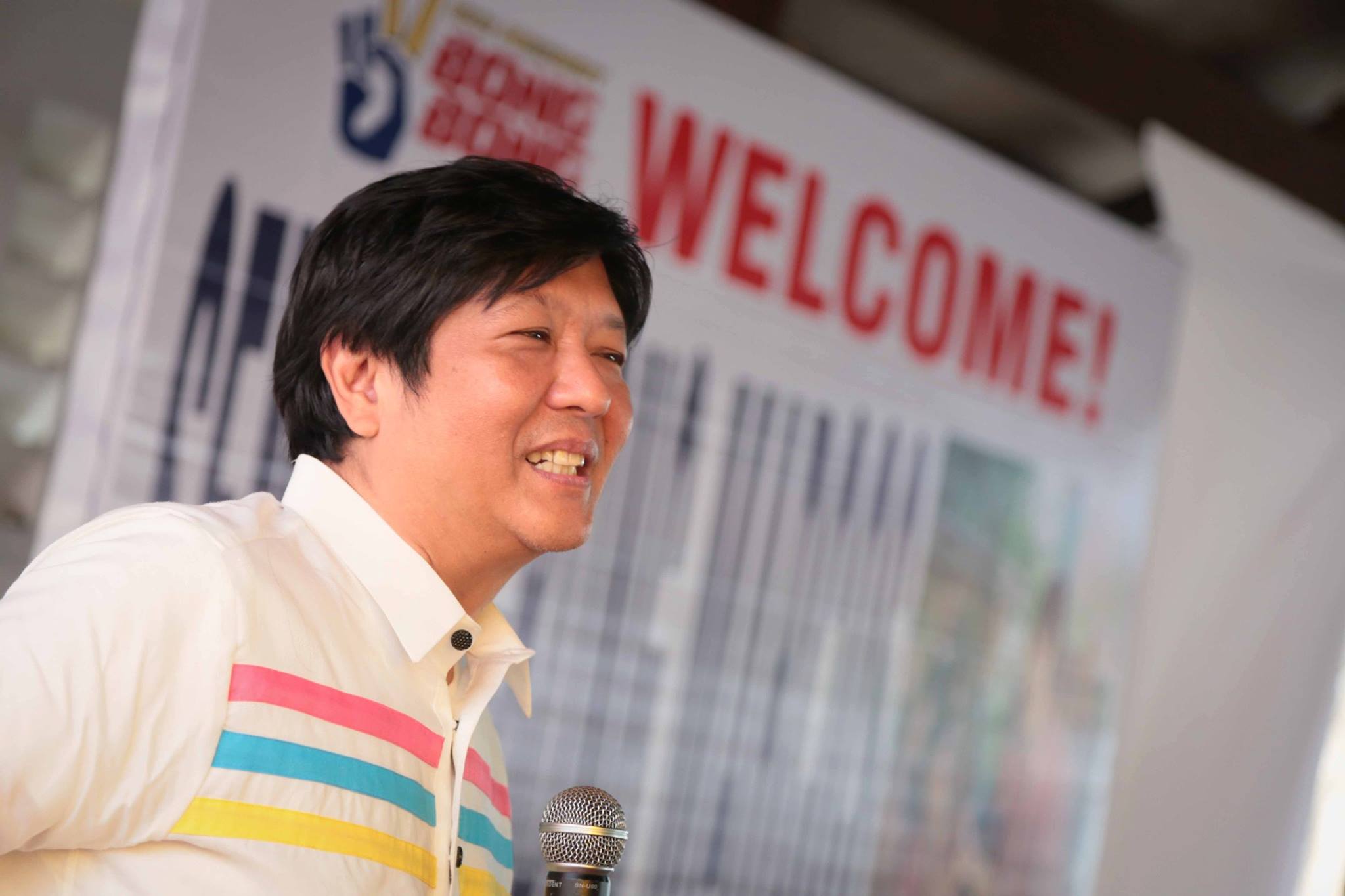Headline
30 years after Marcos’ fall, his son aims for No. 2 job

Vice-presidential candidate Ferdinand “Bongbong” Marcos Jr.
(Photo from the official Facebook page of Sen. Marcos)
MANILA, Philippines—Three decades after a “people power” revolt ousted his dictator father, Sen. Ferdinand Marcos Jr. was wooing voters on the campaign trail this week in his bid to become the Philippines’ next vice-president.
He has a decent shot at fulfilling that ambition—polls show he is in second place among six rivals. If he wins, that would put him one step away from the presidency his father and namesake lost in the army-backed public uprising in February 1986 amid allegations of plunder and widespread human rights violations.
Thirty years ago Thursday, Ferdinand Sr. and Imelda Marcos and their family fled the country after four days of massive street protests that saw rosary-clutching nuns and ordinary citizens kneeling before tanks and protesters sticking yellow flowers into the muzzles of assault rifles of pro-government troops.
At a ceremony Thursday attended by President Benigno Aquino III, protest leaders and others re-enacted events from that historic revolt near a monument commemorating it.
Aquino condemned the abuses, including the 1983 assassination of his father, opposition leader Benigno Aquino Jr. He criticized the younger Marcos for refusing to even acknowledge his family’s misdeeds.
“If he couldn’t even see what was wrong in what their family did, how can we expect that he won’t repeat these?” Aquino said.
Marcos Jr. made no mention of the uprising when he addressed listeners Monday in a poor village near Manila where supporters of his father live.
Instead, he talked about how people have suffered under leaders since his father’s departure, tapping into disillusionment over persistent poverty and corruption that plague the country, as well as an ongoing Islamic insurgency in the south. He did not utter the name of Aquino, a scion of a political clan whose longstanding rivalry with the Marcoses has shaped the country’s political scene for decades.
“Our leaders, instead of nurturing and helping us, sowed infighting and divided us into groups,” Marcos told the crowd of a few hundred villagers, many of whom chanted his nickname, Bongbong, and wore red, the colour associated with his family.
“I’m fighting to start a movement to unite the Filipino people,” he said on a sparse stage where he stood with a handful of local town officials, a far cry from the scenes of his family’s heyday.
Marcos, 58, appears to have a strong following among younger people who did not witness abuses during the 1972-81 period of martial law under his father or the popular revolt that overthrew him. When asked if he would eventually seek the presidency, he refuses to answer categorically.
Filipino voters cast separate ballots for president and vice-president, so often candidates from different parties are elected. The vote is May 9.
“I am perplexed by the viability of Bongbong’s candidacy for vice-president,” said Gerard Finin of the East-West Center in Hawaii. “The longing for a stronger and more effective Philippine state has not faded.”
Still, sidestepping the past is daunting in a country that still celebrates the Marcoses’ downfall each year as a national reminder of how Filipinos once stood up to a dictatorship.
In 1986, years before the era of Facebook, Twitter and cellphones, unarmed Filipinos rapidly massed along a highway in Manila by word of mouth and anti-government radio broadcasts to protect the defence minister, the military deputy chief of staff and their forces who defected from an ailing Marcos.
The Marcoses lived in exile in Hawaii for several years and Ferdinand Sr. died there in 1989.
Imelda Marcos returned to the Philippines in 1991. Her husband’s remains were brought home later to his northern hometown of Batac, where his glass coffin has become a tourist attraction.
Imelda, now 86, went to a popular Roman Catholic church in suburban Baclaran district of Manila in a wheelchair Wednesday to hear Mass with her aides, apparently unaware that a group of Marcos-era human rights victims were inside holding a program and recalling how they were tortured and abused by troops. Imelda Marcos, who appeared stoic, quietly left after the communion, according to witnesses.
Despite her reputation for extravagance, best exemplified by the 1,220 pairs of shoes she left behind in the presidential palace after her husband’s downfall, she and her children enjoy a degree of popularity, particularly in her late husband’s northern political stronghold of Ilocos Norte province.
She has faced some 900 civil and criminal cases in Philippine courts since 1991 but has never served prison time. Many of the cases have been dismissed for lack of evidence and a few convictions were overturned on appeal.
Nearly 10,000 Filipinos won a U.S. class-action suit in 1995 against the Marcos estate for torture, summary executions and disappearances with jurors awarding US$1.9 billion to the victims. More than 7,000 have been compensated after years of waiting.
Imelda Marcos twice ran unsuccessfully for president but won seats in the House of Representatives, where she is running for re-election to a third and final term in May 9 elections while a daughter is running unopposed as Ilocos Norte governor.
Left-wing activists, including those detained during the period of martial law, gathered at a university Monday to launch a coalition against Ferdinand Marcos Jr.’s vice-presidential run, dubbed the Campaign Against the Return of the Marcoses to Malacanang, or CARMMA. Malacanang is the presidential palace in Manila.
Coalition leader Bonifacio Ilagan, who was imprisoned and tortured during martial law, warned that if the young Marcos was elected, he would be tantalizingly close to capturing the presidency, which would give him a chance to redeem his family’s name by rewriting history.
“He’s the number one defender of his father’s regime,” Ilagan said. “If he wins as vice-president, it’s almost a complete reversal of what was won in 1986.”





















